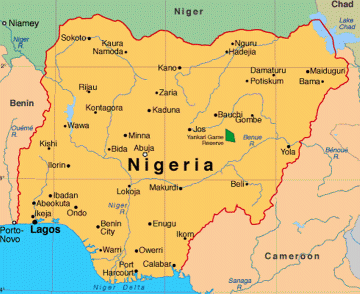Interest rate cuts not enough to pull Nigeria out of recession
 Nigeria’s economy fell into recession in Q2, contracting 2.2% annually (Q1: -0.4% year-on-year). Falling oil production mainly caused the slump, as attacks by militants on oil-related infrastructure caused output to plunge.
Nigeria’s economy fell into recession in Q2, contracting 2.2% annually (Q1: -0.4% year-on-year). Falling oil production mainly caused the slump, as attacks by militants on oil-related infrastructure caused output to plunge.
Lagos - Interest rate cuts alone will not help to pull Nigeria out of a recession amidst rising inflation, the country's central bank said on Wednesday.
It is no longer news that the Nigerian economy has been officially declared to be in a recession. The rate of inflation has skyrocketed and several people who were hitherto excited about the prospect of investing in real estate are not so keen.
Nigeria’s economy fell into recession in Q2, contracting 2.2% annually (Q1: -0.4% year-on-year). Falling oil production mainly caused the slump, as attacks by militants on oil-related infrastructure caused output to plunge from 2.11 million barrels per day (mbpd) in Q1 to just 1.69 mbdp in Q2.
On Tuesday, the central bank kept its benchmark interest rate at 14%, resisting the finance minister's call to lower borrowing costs.
Moses Tule, the central bank's monetary policy director, said policymakers will need to act together on fiscal, monetary and trade policies to jump start growth, which dropped for the second consecutive quarter in the second quarter and counter prices are rising.
"It's not sufficient for the monetary policy committee to just meet and say we are reducing interest rates to address a stagflation," Tule told Nigeria's Channels TV. "In a situation where we have negative interest rates, what we have to do is to overcome negative interest rates."
He said Nigeria's policy rate had been stuck at 6% in the past but it didn't spur credit growth, because the banking system did not respond to the move.
He said inflation was rising not due to excess money supply but because of recent reforms which include a hike to electricity tariffs, fuel price and a currency float which led to a 30 percent drop in the value of the naira in one day.
"If we were merely in a recession, then we could (...) say we would spend our way out of the recession. For an economy like Nigeria, where there are key structural deficiencies, there's an urgent need to harmonise the policy mix."
Finance Minister Kemi Adeosun had urged the central bank to lower interest rates so that the government can borrow domestically to boost the economy, which is stuck in recession, without increasing its debt-servicing costs.
According to a survey carried out by FKO Investments and Research Limited recently, 75 per cent of Nigerians are worried about the economy while 15 per cent are worried about terrorism and insecurity. Ten per cent of Nigerians are worried about crime.
The economic decline of the Nigerian state has affected the lives of the populace negatively. Prices of goods and services are rising daily while the income of the populace remains stagnant. Nigeria is an import-dependent country and the scarcity of foreign exchange will adversely affect the importation of commodities.
Most Popular
Watch: A Credible Market, the need for Standards in Property Industry
Valuation standards have a significant role to play in helping to regulate professional practice at national, regional and global levels, promoting professional ethics, integrity, impartiality and trust in valuer activities in the property industry. ... Full story











